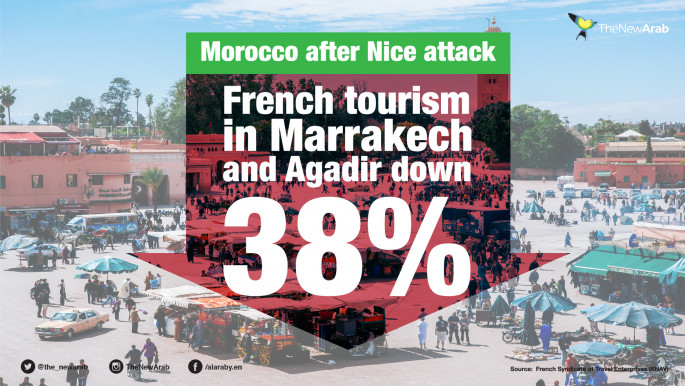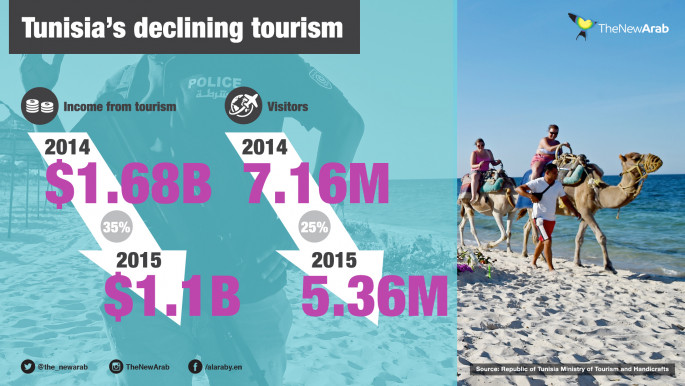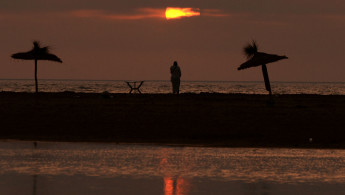Terror and tourism in North Africa
For many in the region employed in the tourism industry, the millions lost in revenue are a huge cause for concern with few signs that things will improve in the near future.
Morocco - A mixed picture
Recently released figures from Morocco's ministry of tourism indicated a positive trend for the North African kingdom with a 9 percent increase in tourist numbers since 2010.
This influx of travellers means that hotel capacity in Morocco has increased by 23 percent over five years.
Despite largely avoiding terror attacks in recent years, the country's tourism industry has still taken a hit after attacks in Turkey, Tunisia, Belgium and France.
Data from Morocco's Tourism Observatory shows that the total number of trips to the country were down by 5 percent in 2016. The number of holidaymakers from France - a country that Morocco has traditionally drawn droves of tourists from - has fallen by 7 percent.
 |
In the wake of the latest terror attack in Nice, the number of French tourists visiting Marrakech and the seaside resort of Agadir has fallen by 38 percent, the French Syndicate of Travel Enterprises has reported.
At the same time, however, the country has enjoyed an 8 percent increase in visitors from the UK and Germany. From further afield, Chinese and Brazilian tourism to Morocco seems undeterred, having shot up by 15 percent and 19 percent respectively.
Tunisia - Reeling from 2015
between 6 and 7 million tourists each year, however this number is now beyond reach for the country's tourism industry.
Data from Tunisia's Tourism Ministry shows that the number of foreign tourists for the first half of 2016 fell by 21.5 percent as compared to the same period last year.
Despite urging its international partners to help revive its tourism industry, Tunisia is still clearly suffering from the tragic events of 2015.
Countries like the UK have still refused to revoke travel warnings against going to Tunisia, causing tour operators and airlines to shift their priorities away from the Mediterranean nation.
Consequently, many European travel companies have ceased operations in Tunisia. According to traveller data intelligence website ForwardKeys, international airline capacity for this summer has also been cut by a quarter.

Egypt - Instability and insurgency
Since the country's revolution in January 2011, Egypt's tourism has nose-dived sharply, marking a strange phase for a country endowed with some of the world's most famous historical monuments.
In 2010, visitor numbers to Egypt peaked at 14 million, but has crashed to around 9 million last year, according to data from the United Nations' World Tourism Organisation.
According to Euromonitor, visitor numbers to Egypt will drop a further 20 percent in 2016.
Political upheaval in the country was the initial factor that caused visitors to shy away from Egypt, however, this has since been worsened by terror attacks and a number of tragedies that have seen many tourists killed.
In October 2015, the IS group claimed responsibility for bringing down a Russian commercial airliner flying from the popular Sinai tourist resort of Sharm el Sheikh, which killed all 224 people on board.
IS militants have gained a foothold in Egypt since the country's 2011 uprising, carrying out numerous kidnappings and killings.
In March, the hijacking of an Egyptian domestic flight raised further fears about travel to the country. This was followed by the crash of Egyptair flight 804, which was at first suspected to be a terror attack. The cause of the crash remains unclear, however, investigators have uncovered evidence of a fire that broke out on board the plane.



